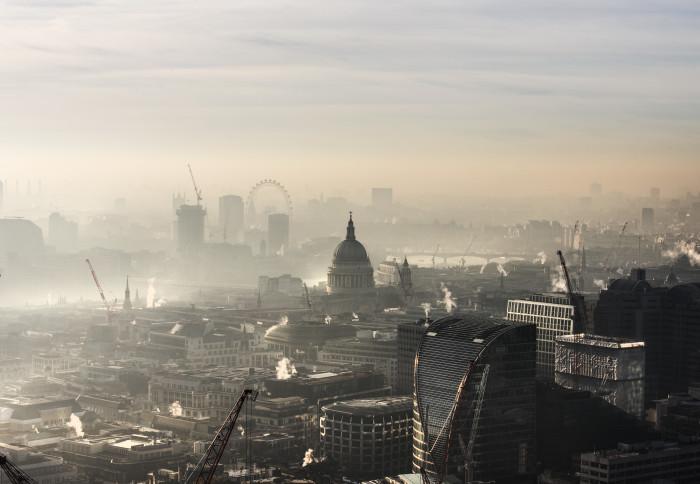Five ways Imperial is helping businesses and policymakers address pollution

Reducing CO2 emissions to net zero is now top of the agenda, but other pollution challenges — in the air, on land, and in water - have not gone away.
Imperial's Transition to Zero Pollution initiative is adopting a holistic approach that addresses all forms of pollution. It has been established to build partnerships that bridge academia, government and industry, helping decision-makers face the urgent sustainability changes that lie ahead.
Below are just a few of the ways that Imperial staff, students, and partners from business and government are working to address pollution in all its forms.
- Understanding air pollution
Researchers from across Imperial are working to monitor air pollution and understand its effects at multiple scales, from its spread through cities to its health effects on individuals. And they’re working with public bodies and companies to translate these insights into interventions such as London’s Ultra Low Emission Zone. - Cleaning up construction
Experts are helping organisations in a range of sectors reduce their emissions. With clients in the construction sector, for example, they are trialling vehicles and on-site generators that use alternative fuels such as hydrogen and exploring measures to reduce fugitive dust transferring from sites to streets. This is creating a new template that could be rolled out across the sector. - Improving water networks
In the UK, researchers are modelling water systems in cities like London, Norwich and Manchester, to improve not only the flow of water through infrastructure such as pipes, drains and reservoirs, but also the quality of water found in natural water systems. - Innovation in re-use and recycling
Innovations in recycling under development at Imperial could prevent waste from reaching land and water systems. New materials and adhesives could make multi-layer packaging like crisp packets much easier to recycle. A tool to model resource flows can help consumer goods companies design products with circularity in mind. - New technologies
A variety of technologies under development by Imperial’s entrepreneurs and collaborators could help to reduce pollution. They include a device for attaching to bicycles that removes particulates from the air, a device for capturing particulate emissions from car tyres, and technologies for turning waste into fuels and packaging.
Learn more in our new e-book
You can learn more about Imperial's work with partners to find solutions for air, water and land pollution in a newly released e-book by journalist Ian Mundell.
Read the new e-book: Solutions for air, water and land pollution
Article text (excluding photos or graphics) © Imperial College London.
Photos and graphics subject to third party copyright used with permission or © Imperial College London.
Reporter
David Silverman
Communications Division